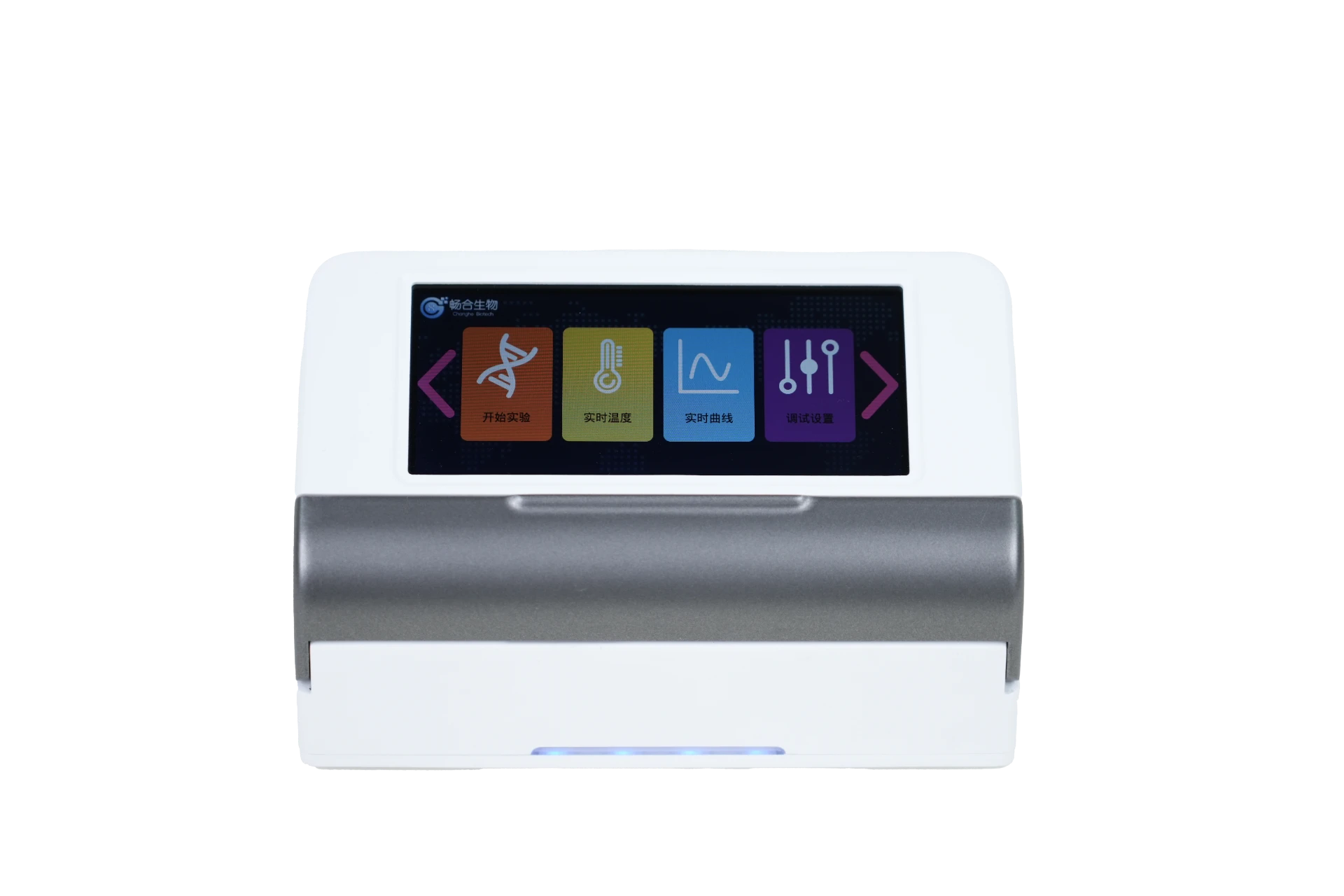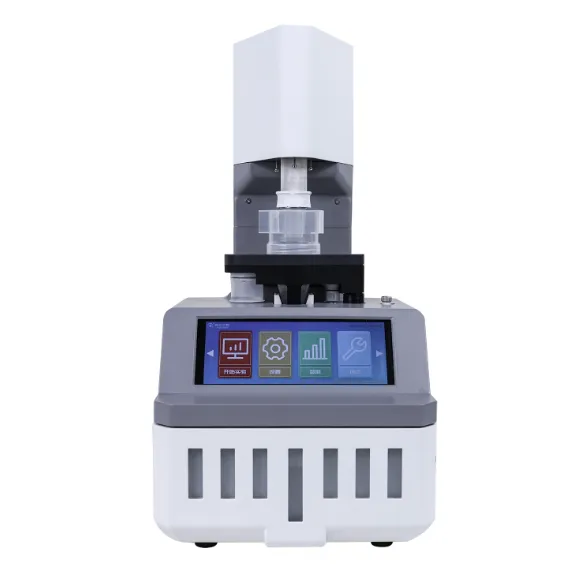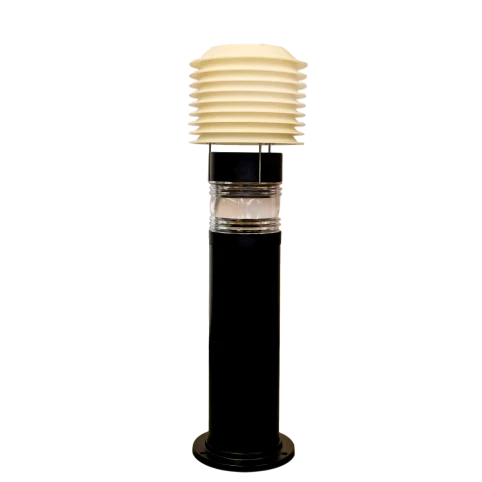
Accurate Tuberculosis PCR Testing Fast DNA Detection & Urine Sample Use
- The Growing Global Burden of Tuberculosis Diagnostics
- Understanding PCR Technology Fundamentals
- Operational Advantages of Molecular TB Testing
- Comparative Analysis of Leading TB PCR Solutions
- Custom Workflow Solutions for Diverse Clinical Needs
- Implementation Case Studies Across Healthcare Settings
- Advancing Patient Outcomes Through Tuberculosis PCR Tests

(tuberculosis pcr test)
The Growing Global Burden of Tuberculosis Diagnostics
With 10 million active tuberculosis cases and 1.5 million deaths annually according to WHO data, efficient diagnosis remains critical. Conventional methods like smear microscopy miss up to 54% of active infections, while culture-based identification requires 2-8 weeks for results. This diagnostic gap contributes significantly to disease transmission, particularly in high-burden regions where 35% of cases go undetected. Molecular diagnostics have transformed this landscape, with DNA PCR test for tuberculosis now detecting as few as 5-10 bacilli/ml in samples. Urine-based testing has emerged as particularly valuable for extrapulmonary and pediatric cases where obtaining sputum proves challenging, representing 15-20% of global TB presentations.
Understanding PCR Technology Fundamentals
Polymerase chain reaction (PCR) amplifies specific Mycobacterium tuberculosis DNA sequences to detectable levels. The methodology targets conserved genetic regions like IS6110 and MPB64, ensuring high specificity exceeding 98% versus environmental mycobacteria. Modern platforms utilize real-time PCR with fluorescent probes (qPCR), providing quantitative results in under two hours. Unlike serological tests, PCR directly detects bacterial genetic material, enabling identification prior to seroconversion. Multiplex variants simultaneously detect TB complex organisms and common rifampicin resistance markers like rpoB mutations. For urine specimens, specialized concentration methods precede DNA extraction to overcome lower bacillary loads, maintaining analytical sensitivity comparable to respiratory samples.
Operational Advantages of Molecular TB Testing
Contemporary tuberculosis PCR test platforms deliver substantial improvements over conventional methods. Laboratory validation studies consistently demonstrate 94-98% sensitivity and 99-100% specificity compared to culture standards. Turnaround times accelerate from weeks to mere hours, enabling same-day treatment decisions. Automation minimizes technical variability, with intra-assay CVs typically under 5% for target quantification. Recent advances integrate sample processing and amplification into cartridge-based systems suitable for peripheral clinics. Urine PCR test for tuberculosis specifically benefits patients unable to produce sputum, showing 85% concordance with tissue biopsy in renal TB diagnosis. The technology also proves invaluable for monitoring treatment response through decreasing bacterial DNA loads, correlating with culture conversion at week 8 of therapy.
Comparative Analysis of Leading TB PCR Solutions
| Manufacturer | Platform | Targets | Sample Types | Sensitivity | Time |
|---|---|---|---|---|---|
| Cepheid | Xpert MTB/RIF Ultra | MTBC, rifampicin resistance | Sputum, CSF, lymph tissue | 95% in smear-negative | 80 minutes |
| Roche | Cobas MTB | MTBC complex DNA | Sputum, urine, pleural fluid | 89% urine specimens | 3 hours |
| Hain Lifescience | GenoType MTBDRplus | MTB complex, RIF/INH resistance | Culture isolates, direct sputum | 97% MDR-TB detection | 5 hours |
| Abbott | RealTime MTB | IS6110 insertion sequence | Respiratory, extrapulmonary | 93% specificity | 4 hours |
Custom Workflow Solutions for Diverse Clinical Needs
Implementation strategies vary significantly between high-volume reference labs and resource-limited settings. Centralized laboratories benefit from automated high-throughput systems processing 500+ samples daily with integrated LIMS connectivity. For decentralized clinics, cartridge-based systems like GeneXpert require under 2 minutes hands-on time while maintaining cold-chain independence. Urine test de mycobacterium tuberculosis DNA PCR workflows incorporate specimen concentration protocols using centrifugation or filtration membranes to overcome analyte dilution. Pediatric applications utilize miniaturized sample inputs (0.2ml) without compromising sensitivity. Multidrug resistance screening packages combine initial detection with first-line drug resistance profiling, while reflex testing protocols automatically advance positive specimens for second-line resistance analysis. Stability testing confirms reliable performance across temperature ranges from 15°C to 30°C, essential for tropical field deployments.
Implementation Case Studies Across Healthcare Settings
A South African mining clinic achieved 78% reduction in time-to-treatment initiation after deploying urine PCR test for tuberculosis in their HIV coinfection cohort, significantly impacting transmission rates within worker dormitories. In India's national program, adoption of cartridge-based systems increased pediatric TB detection by 38% at district hospitals through non-sputum based testing. An Indonesian reference laboratory established pre-diagnostic sample pooling strategies that reduced reagent costs by 42% without sacrificing sensitivity when screening low-prevalence populations. Notably, Brazilian researchers demonstrated 92% concordance between urine PCR and culture for bone/joint TB diagnosis, shortening diagnostic delays from 8 weeks to 48 hours. Successful implementation consistently required staff competency development, with median training times of 6-8 hours for technical personnel.
Advancing Patient Outcomes Through Tuberculosis PCR Tests
The evolution of tuberculosis PCR test methodologies continues addressing persistent diagnostic challenges. Emerging innovations include digital PCR platforms capable of absolute quantification without standards and CRISPR-based detection with attomolar sensitivity. The integration of test de mycobacterium tuberculosis DNA PCR into routine HIV care protocols has proven particularly valuable, reducing TB mortality in immunocompromised populations by 35% in programmatic data. Urine-based DNA PCR testing demonstrates growing importance for difficult-to-diagnose extrapulmonary cases, with multi-country validation studies now reporting 82-87% sensitivity compared to composite clinical standards. As molecular diagnostics become increasingly accessible, their strategic deployment in active case-finding and preventive therapy monitoring promises significant contributions to global TB elimination targets through accurate, actionable tuberculosis detection.

(tuberculosis pcr test)
FAQS on tuberculosis pcr test
Q: What is a tuberculosis PCR test?
A: A tuberculosis PCR test detects Mycobacterium tuberculosis DNA using polymerase chain reaction. It provides rapid and accurate diagnosis for active TB infections. This molecular test reduces reliance on slower culture methods.Q: How does a DNA PCR test for tuberculosis detect the bacteria?
A: The DNA PCR test amplifies specific Mycobacterium tuberculosis DNA sequences from a sample. This allows identification even when bacterial levels are low. It ensures quick results for prompt treatment decisions.Q: When is a urine PCR test for tuberculosis typically recommended?
A: It is recommended for diagnosing extra-pulmonary TB cases, such as genitourinary infections. This non-invasive test detects TB DNA in urine samples. It provides an alternative when sputum is hard to obtain.Q: What distinguishes a Mycobacterium tuberculosis DNA PCR test from others?
A: It targets unique DNA markers specific to Mycobacterium tuberculosis only. This high specificity minimizes cross-reactivity with other bacteria. The test delivers reliable results for confirming TB.Q: Is the tuberculosis DNA PCR test more accurate than traditional methods?
A: Yes, it has superior sensitivity and specificity compared to smear microscopy. However, accuracy depends on proper sample handling and lab conditions. It's preferred for early detection in clinical settings.-
Cat PCR Testing Accurate Diagnosis & Health ScreeningNewsJun.07,2025
-
Top PCR Machine Suppliers Reliable Equipment & Global Support PCRDirectNewsJun.07,2025
-
Professional Mold Detection Devices Fast & Accurate ResultsNewsJun.06,2025
-
Accurate PCR Test Instruments for Fast & Reliable DiagnosticsNewsJun.06,2025
-
Accurate Monkey Virus Real-Time PCR Kit - Fast DetectionNewsJun.06,2025





